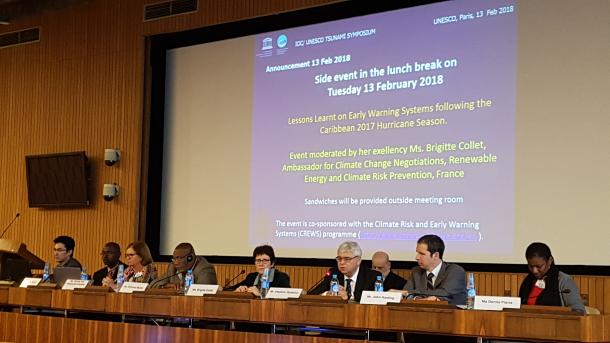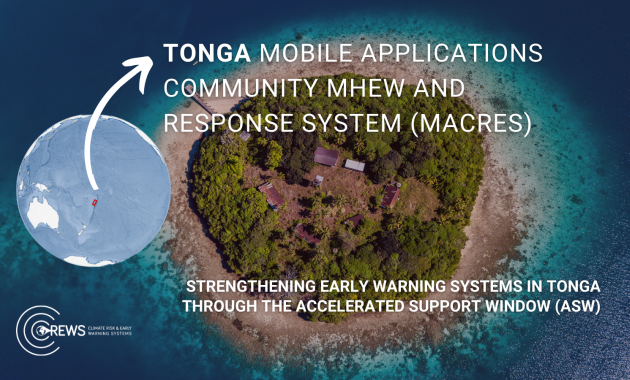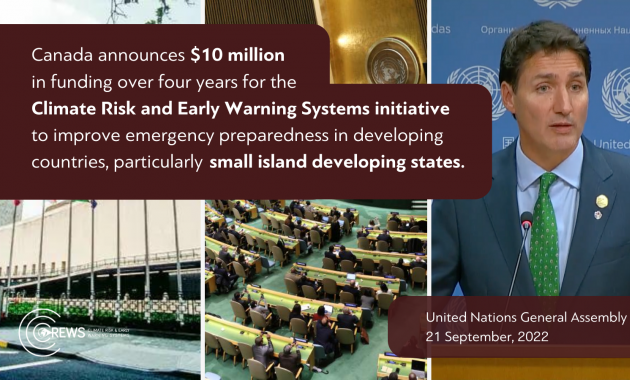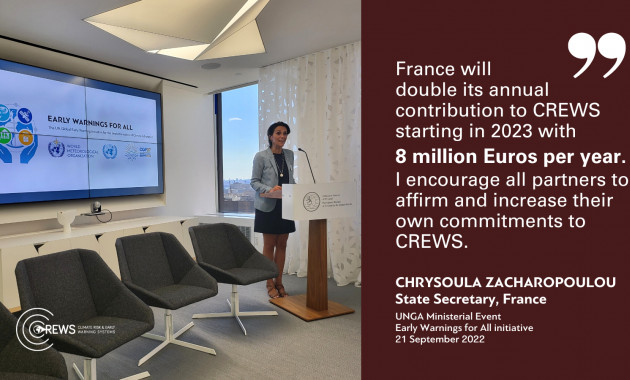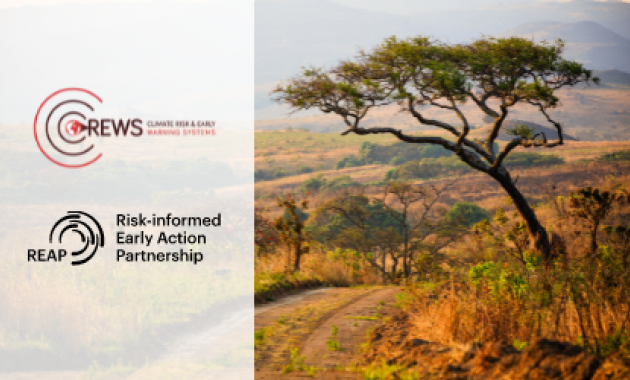UNESCO invited CREWS to participate in its Tsunami Symposium following the recognition of shared beneficiaries when discussing priority areas to strengthening early warning systems. CREWS in accepting the invitation to host a panel discussion linked it to the current initiative “Lessons Learnt in EWS following the 2017 Hurricane Season in the Caribbean.” The panel included Mr. Dale Destin, Director (ag) of the Antigua and Barbuda Meteorological Service, Mr. Philmore Mullin, Director of the National Office of Disaster Services (NODS), Antigua and Barbuda, Ms. Christa von Hillebrandt-Andrade, chair of UNESCO/IOC Intergovernmental Coordination Group for the Tsunami and other Coastal Hazards Warning System for the Caribbean Sea and Adjacent regions and Mr. John Harding, Head of the CREWS Secretariat.
The Caribbean panelists all recounted how the systems functioned during the hurricane season noting that they have recognized improvement in delivering and receiving alerts and warning information. They also spoke about several key challenges they were confronted with in the immediate aftermath with the most common issue relating to the disruption in communication networks with communities. This, they cited, was especially challenging in an environment where sequential major storms were occurring.
Vladimir Ryabinin, Executive Secretary, IOC/UNESCO, commented that though they focused on Tsunamis there were common lessons learnt. In recognizing this complementarity between the two (Tsunamis & Tropical Cyclones) he called for collaboration, where appropriate, around developing warnings to reflect the commonalities between the hazards.
In her concluding remarks to close the panel discussion, Ambassador Collet reiterated the commitment of CREWS to supporting Small Island Developing States in building back better. She shared with participants the recent demonstration of this commitment at the One Planet Summit held in Paris last December where the Caribbean Climate Smart Coalition initiative was launched.
From left: Denis Chang Seng, Technical Secretary, NEAMTWS, IOC/UNESCO; Dale Destin, Director (Ag) Antigua and Barbuda Meteorological Service; Christa von Hillebrandt-Andrade, IOC/UNESCO; Philmore Mullin, Director, National Office of Disaster Services, Antigua and Barbuda; Ambassador Brigitte Collet, Climate Change Negotiations, Renewable Energy and Climate Risk Prevention, Ministry for Europe and Foreign Affairs, France & Chair of CREWS Steering Committee; Vladimir Ryabinin, Executive Secretary, IOC/UNESCO; Philippe Cerf, Advisor to Ambassador for Climate Change Negotiations, Renewable Energy and Climate Risk Prevention, Ministry for Europe and Foreign Affairs; John Harding, Head, CREWS Secretariat, and Donna Pierre, DRM Specialist, CREWS Secretariat.

